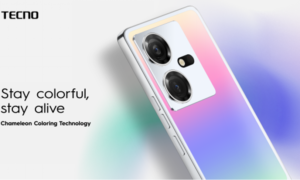Smartphone Processors are almost similar to the CPUs that you find on Laptops and Desktops. However, they differ from traditional CPUs mainly due to their architecture.
Whereas Desktop and Laptop CPUs are designed for performance, smartphone CPUs are optimized to be power efficient and be able to accomplish the most while sucking the least amount energy from the battery.
![[image] Smartphone Processors Everything to know](https://mobitrends.co.ke/wp-content/uploads/2015/11/image-Smartphone-Processors-Everything-to-know.jpg)
There are different ways in which smartphones CPUs can be classified. The most common one is by the number of core and the other includes the architecture type and chipset brand.
Important: The clock rate or speed of a CPU is also critical. The speed of a smartphone CPU is measured by its clock rate that is expressed in either Megahertz (MHz) or Gigahertz (GHz).
Number of Cores
Picture a house, a big house. When designing the house you are at liberty to have the number of rooms you prefer. You can either have one room, two rooms or as many as you like depending on the size of your house.
After you have divided the house into rooms, you can choose to give each room its function, i.e. living room, kitchen, bedroom and may be a guest room. Through this, you have greatly enhanced the functionality of the house as opposed to having just one huge single room.
This analogy is the same with smartphone CPU. With a multi-core CPU, the processor is divided into a definite number of cores and just like the different rooms in a house, each core can be assigned a specific task.
Therefore, the same CPU can accomplish a number of different tasks, all at the same time.
![[image] Smartphone Processors Everything you need to know](https://mobitrends.co.ke/wp-content/uploads/2015/11/image-Smartphone-Processors-Everything-you-need-to-know.jpg)
The common multi-core CPU terms used include;
Single-Core CPU – A Processor with a single core
Dual-Core CPU – A Processor with two cores
Quad-Core CPU – A Processor with four cores.
Hexa-Core CPU – A Processor with one six cores
Octa-core CPU– A Processor with one eight cores
It is important to note that the number of cores does not directly mean better performance. Other factors such as the frequency of the CPU, the nature of the operating system as well as the quantity of the RAM available will also determine the performance of the CPU.
Also, another bit is that, for example a Hexa-core CPU does not necessarily mean one CPU divided into six cores. The most common procedure in such a setup is to use a combination of a Dual-core CPU and a Quad-core CPU to achieve the Hexa-core setup.
Architecture type
On the architecture type, the classification is based on 32-bit or 64-bit systems.
The main difference between the two CPUs architecture is the number of calculation they can perform per second.
64-bit processors are a bit faster and more appropriate when running complex applications on your smartphone. 64-bit processors are gradually becoming common place and expect to use the architecture in more future smartphones.
Chipset Brands
There are four main smart phone chipset brands. They include;
Qualcomm – This is the most common chipset brand and it is commonly found in mid-range and high-end smartphones.
Mediatek – Mediatek Chipsets are commonly found in low-end and budget smartphones.
Exynos – Samsung Exynos Chipsets are common in high-end Samsung smartphones.
HiSilicon – An upcoming Huawei-owned chipset brand common in Huawei smartphones.
Kevin is a tech enthusiast and the lead writer at MobiTrends.co.ke. He has been writing about smartphones and tech related topics since October 2012. About Us | Contact Us







